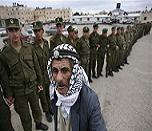
On January 25 Palestinians went to the polls to elect a new legislature for the second time in the history of the Palestinian National Authority (PNA). The Palestinian people flocked to the election polls with an overwhelming majority. According to the Palestinian Central Elections Committee voter turnout was at an astonishing 77%. Prior to the commencing of the elections, several opinion polls, as well as exit polls projected that the Islamic Resistance Movement (Hamas) and the ruling party Fateh, were on a neck on neck race. However, it would be fair to say that nobody would have expected the results that these elections brought with them. The results are as follows: Hamas 76 seats, Fateh 43 seats, the Popular Front for the Liberation of Palestine (PFLP) 3 seats, The Third Way block 2 seats, Badil 2 seats, Independent Palestine 2 seats and a list of other independents won the remaining 4 seats.
With this fundamental change that has taken place in the Palestinian political landscape, many uncertainties lie ahead not only for the Palestinian people, but also for the Palestinian political apparatus, that is to say the PNA and its adjacent institutions. However, before pondering about the road ahead, it is an imperative to clarify what brought us here (a situation where a radical group posses a majority of seats in the Palestinian legislative council).
Several factors have lead to the rise of political Islam in the occupied Palestinian territories. According to the prominent Palestinian spokesperson and PLC member Dr. Hanan Ashrawi, there are three main contributing and catalytic factors to this, the first being Israel's continued insistence to undermine a genuine peace process with the PNA, as well as continued and unabated human rights violations. Secondly, the Palestinian publics' discontent with the ruling party Fateh, which has been plagued by ills such as corruption, infighting and a failed peace process with Israel. Thirdly, the blind and unwavering support by the Bush administration to the former Israeli Prime Minister Sharon, for his unilateralist and destructive policies, that frustrated the Palestinian people.
Where do Palestinians go from here? The international community and for that matter Israel, have put forth a set of preconditions before engaging with a new Palestinian government that is to be lead by Hamas. The two preconditions are firstly, for Hamas to renounce violence/terror and disarm, secondly for Hamas to drop its prime directive, namely the destruction of the State of Israel.
In turn, Hamas has set forth its own rules, as it has always done when it was an opposition party. Hamas' preconditions are at most vague, in a press conference today the Secretary-General of Hamas Khaled Mishaal, said he was willing to engage with the international community, however, only under conditions and parameters that would be "acceptable" for the Palestinian people. Signaling to the international community that Hamas would be willing to enter the political game, but only under its own terms.
With all the parties involved in this conflict raising their rhetoric in the form of preconditions for dealing with each other, it would be fair to say that deadlock is where this region is heading towards. Firstly, the international community must respect the results of these elections, rather than threaten to withhold funds to an already impoverished people. Secondly, Hamas needs to govern the Palestinian people with wisdom and responsibility. Hamas cannot conduct itself any longer as an opposition party, governing an entire people will involve running everyday matters that are crucial to Palestinians, such as; electricity; transportation, healthcare, finance, security and development. With the world at large closely monitoring Hamas' every move, Hamas' test will be bring results to the Palestinian people sooner rather than later.
Daedlock is the last thing this region needs, a good piece of advice would be for all sides to tone down their rhetoric and engage in constructive and pragmatic dialogue.







